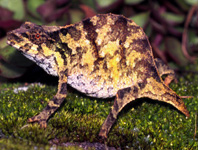Abstract
A recent correspondence (Poe 2013; hereafter referred to simply as ‘Poe,’ ‘he,’ or ‘his’) criticized our monographic revision of anole classification (Nicholson et al. 2012; hereafter referred to as ‘our’). In tone and content, Poe expresses his distress with the idea that his preferred concept of a single, large genus, containing all living members of the family Dactyloidae, might be divided into eight smaller genera. We acknowledge that science benefits from vigorous, intellectual debate, but would have preferred his commentary to be more constructive, objective, and scientifically accurate. We therefore present this rebuttal to explain how Poe erred in characterizing our work, and missed the opportunity to present an alternative comprehensive taxonomy to replace the one against which he argues so strenuously. In this contribution we explain, and correct, Poe’s errors and misrepresentations, and argue that our taxonomy is likely to be adopted because it 1) eliminates the obvious problem that will arise if the family Dactyloidae contains only a single large genus (i.e., that a single genus obscures the evolution and diversity within the group and misrepresents or cloaks it), 2) conforms with the long historical trend of dissecting large, cumbersome groups into smaller sub-units, 3) is consistent with all recent phylogenetic studies for anoles in membership within clades we recognize as genera, and 4) aids in associating these lizards with the ancient land masses that shaped their history.

